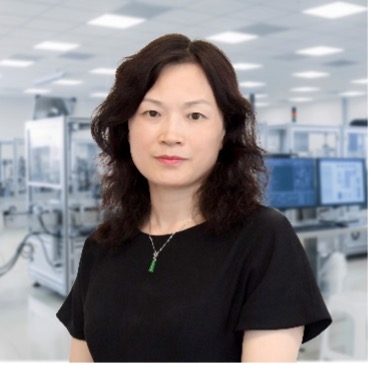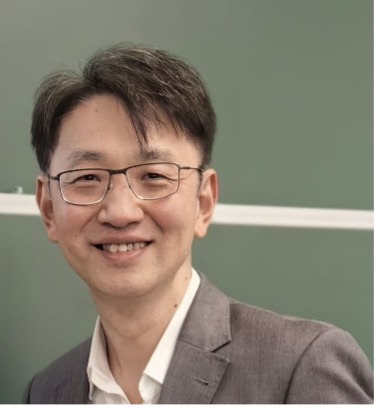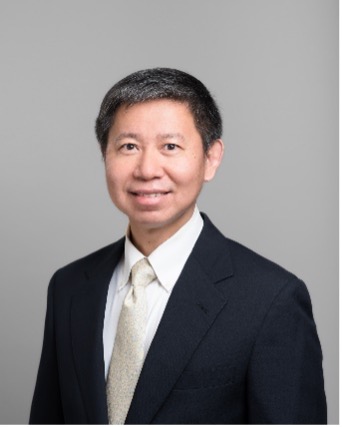Prof. Qian Zhang

Title
Mobile Sensing for Smart Healthcare in the age of AIoT
Abstract
Sensing is an effective means to connect the physical world and digital space. Exploring the intelligent sensing capability has drawn researcher’s great attention. It is quite excited to see in recent years, besides wearable sensing, people have also begun to explore the acoustic, wireless signal, light, and other ambient communication medium’s capability for sensing purpose. In this talk, I will introduce some of our work related to how to leverage the communication medium's sensing capability to enable smart healthcare applications, especially focus on home care scenario.
Bio
Dr. Qian Zhang joined Hong Kong University of Science and Technology (HKUST) in 2005 where she is now Tencent Professor of Engineering and Chair Professor of the Department of Computer Science and Engineering. She is now also serving as the Acting Head of Division of Integrative System and Design (ISD) of HKUST. She is also serving as the director of digital life research center, and the director of Microsoft Research Asia (MSRA) Information Technology Key Laboratory of HKUST. Before that, she was in Microsoft Research Asia, Beijing, from July 1999, where she was the research manager of the Wireless and Networking Group.
Dr. Zhang has published more than 400 refereed papers in international leading journals and key conferences. Her current research interests include Internet of Things (IoT), smart health, mobile computing and sensing, wireless networking, as well as cyber security. She is a Fellow of the IEEE and a Fellow of the Hong Kong Academy of Engineering Science (HKAES).
Prof. Yunhao Liu

Title
Industrial Internet of Things
Abstract
We have passed the period of Digital-Follow-up, and now we are in Digital Twin, and trying to enter Digital-lead-off of Industrial Internet of Things (IIOT).
Bio
Yunhao Liu is Professor at Automation Department and Dean of the GIX in Tsinghua University, ACM Fellow and IEEE Fellow. Yunhao received his BS degree in Automation Department from Tsinghua University, an MS and a Ph.D. degree in Computer Science and Engineering in Michigan State University. He is the Honorary Chair of ACM China.
Prof. Baochun Li

Title
Towards Fine-Tuning Large Language Models with Private Data
Abstract
With the recent surge of research interests in Large Language Models (LLMs), a natural question that arises is how pre-trained LLMs can be fine-tuned to tailor to specific needs of enterprises and individual users, while preserving the privacy of data used in the fine-tuning process. On the one hand, sending private data to one datacenter for fine-tuning is, without a doubt, unacceptable from a privacy perspective. On the other hand, conventional federated learning requires each client to perform local training, which is not feasible for LLMs with respect to both computation costs and communication overhead, since they involve billions of model parameters.
In this talk, I will present some of our recent advances towards addressing the challenge of fine-tuning large language models with private data. I will first present Titanic, a new distributed training paradigm that allows LLMs to be fine-tuned in a privacy-preserving fashion directly on the client devices where private data is produced, while operating within the resource constraints on computation and communication bandwidth. The key idea of Titanic is to partition an LLM across multiple client devices, so that it can be fine-tuned with no or minimal losses in training performance. In designing Titanic, we focused on its feasibility in real-world systems, and implemented a model-agnostic partitioning mechanism that is fully automated. In closing, we briefly present our recent work on the use of multiple cloud platforms to perform distributed machine learning across clouds. This preserves the privacy of data as we ship training workloads to where data resides. We envision a high-speed overlay network atop datacenters and clouds, capable of relaying data across multiple paths while reacting nimbly against network changes with optimized policies.
Bio
Baochun Li received his B.Engr. degree from the Department of Computer Science and Technology, Tsinghua University, China, in 1995 and his M.S. and Ph.D. degrees from the Department of Computer Science, University of Illinois at Urbana-Champaign, Urbana, in 1997 and 2000. Since 2000, he has been with the Department of Electrical and Computer Engineering at the University of Toronto, where he is currently a Professor. He holds the Bell Canada Endowed Chair in Computer Engineering since August 2005. His current research interests include cloud computing, security and privacy, distributed machine learning, federated learning, and computer networking.
Dr. Li has co-authored more than 470 research papers, with a total of over 25000 citations, an H-index of 88 and an i10-index of 339, according to Google Scholar Citations. He was the recipient of the IEEE Communications Society Leonard G. Abraham Award in the Field of Communications Systems in 2000, the Multimedia Communications Best Paper Award from the IEEE Communications Society in 2009, the University of Toronto McLean Award in 2009, the Best Paper Award from IEEE INFOCOM in 2023, and the IEEE INFOCOM Achievement Award in 2024. He is a Fellow of the Canadian Academy of Engineering, a Fellow of the Engineering Institute of Canada, and a Fellow of IEEE.


